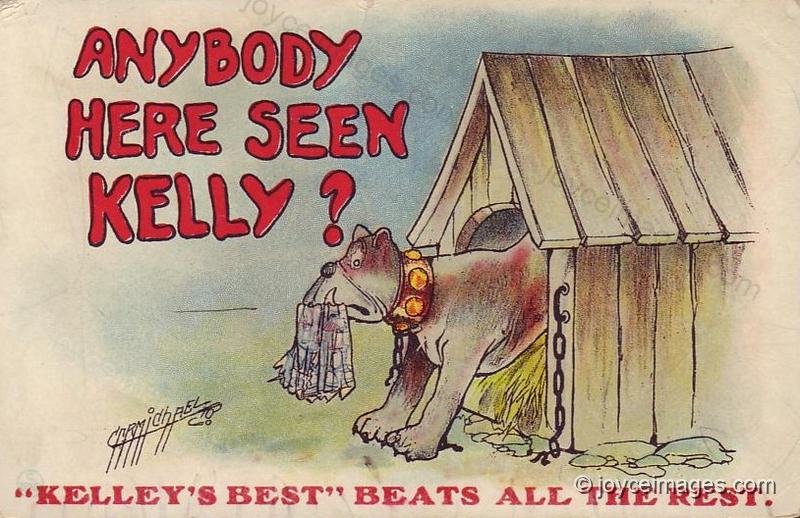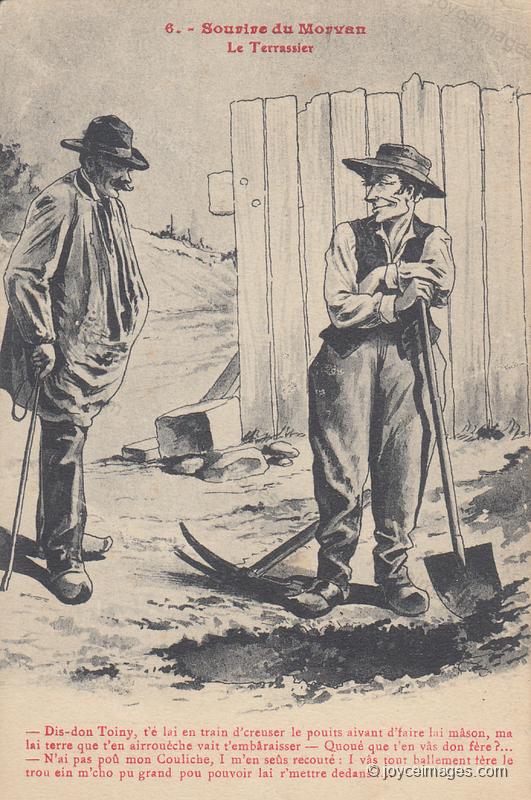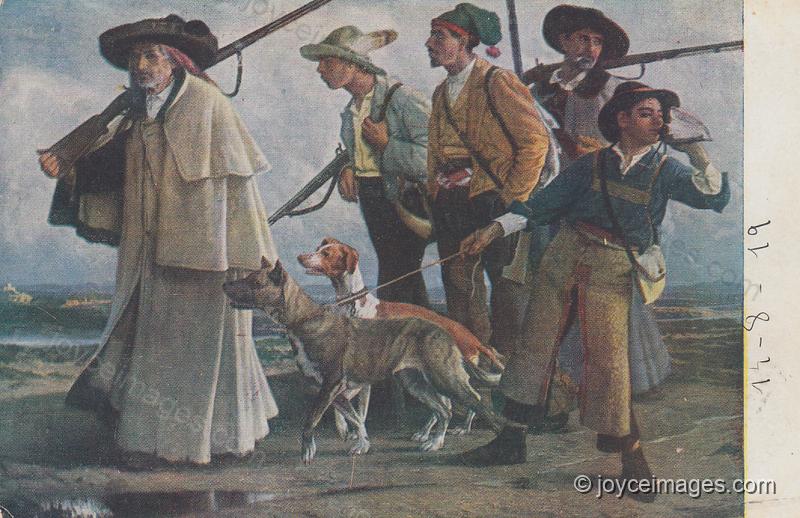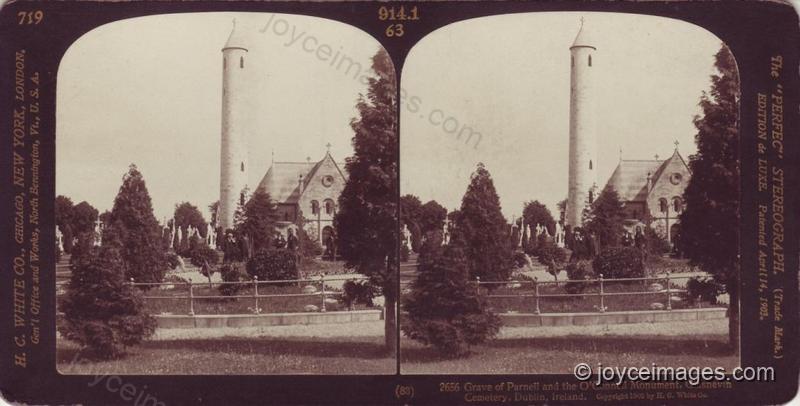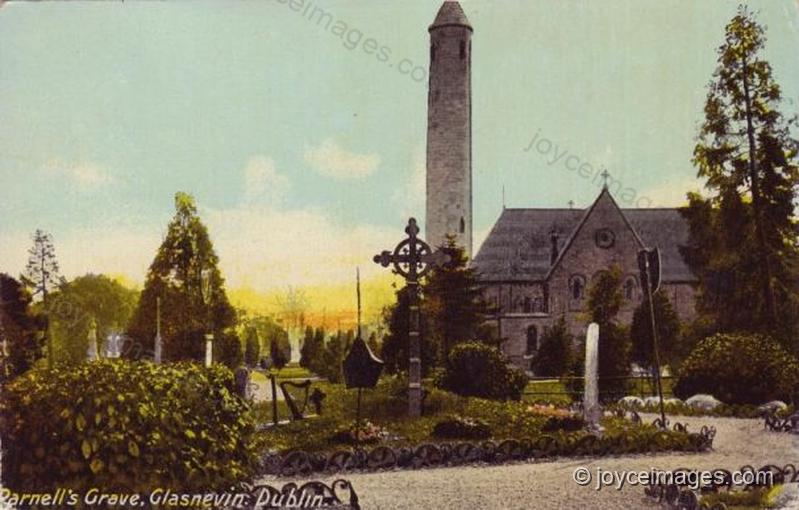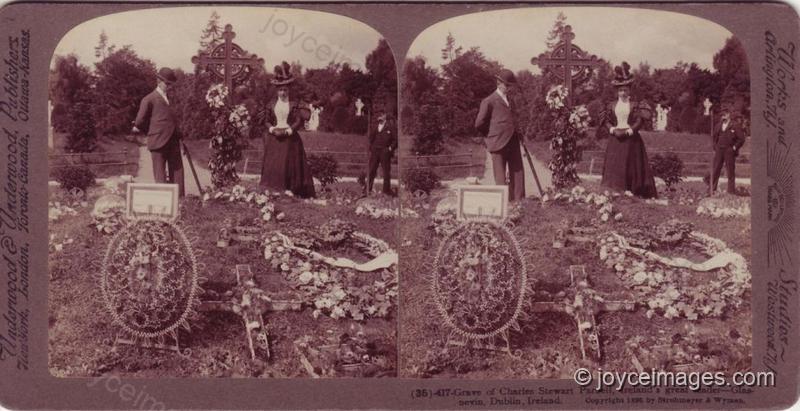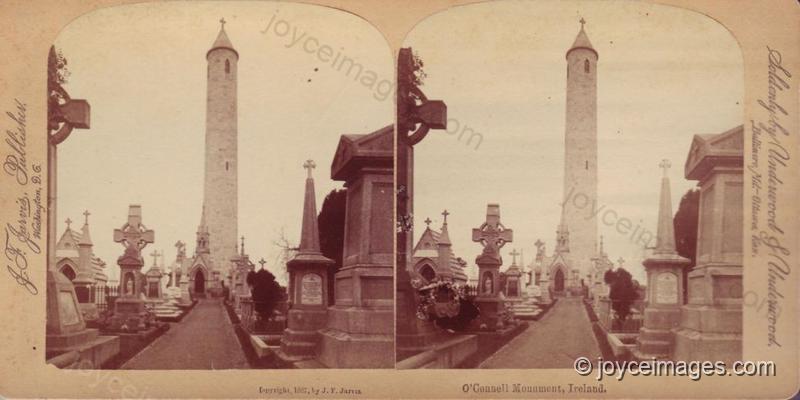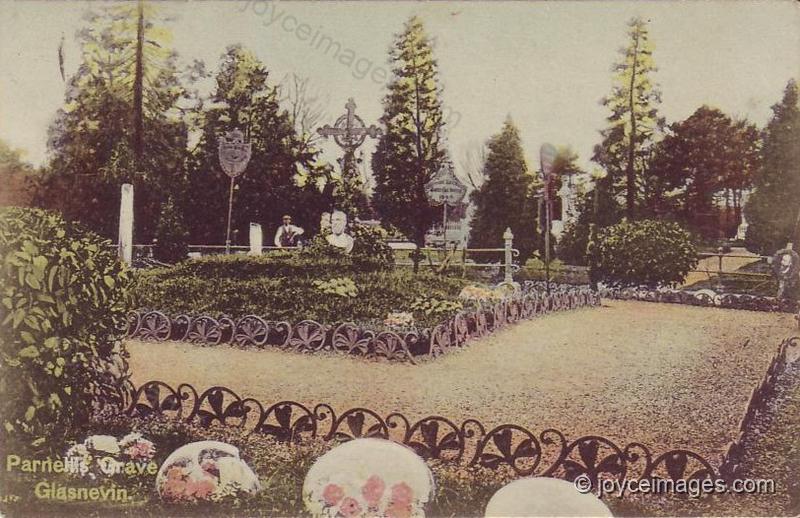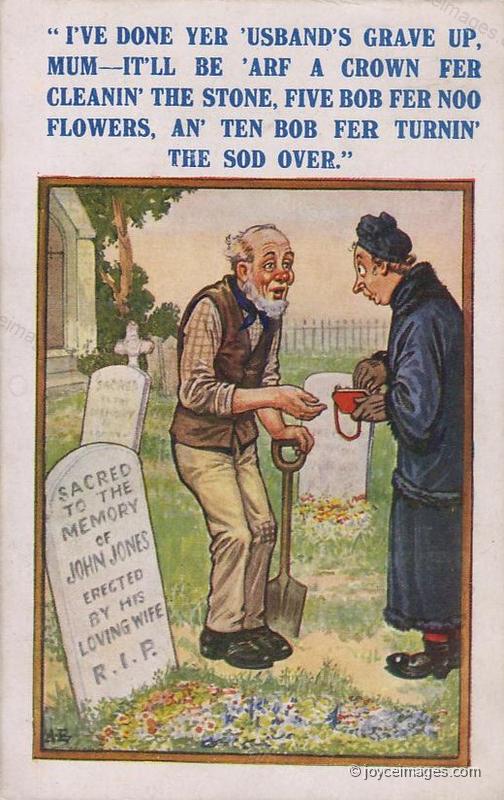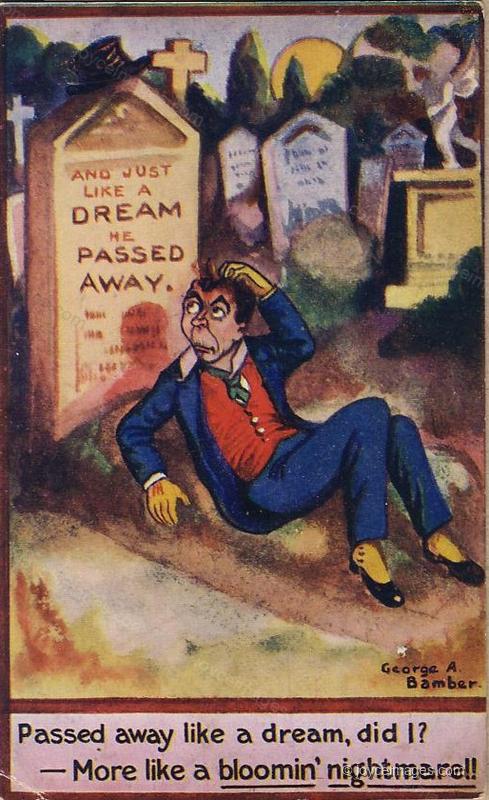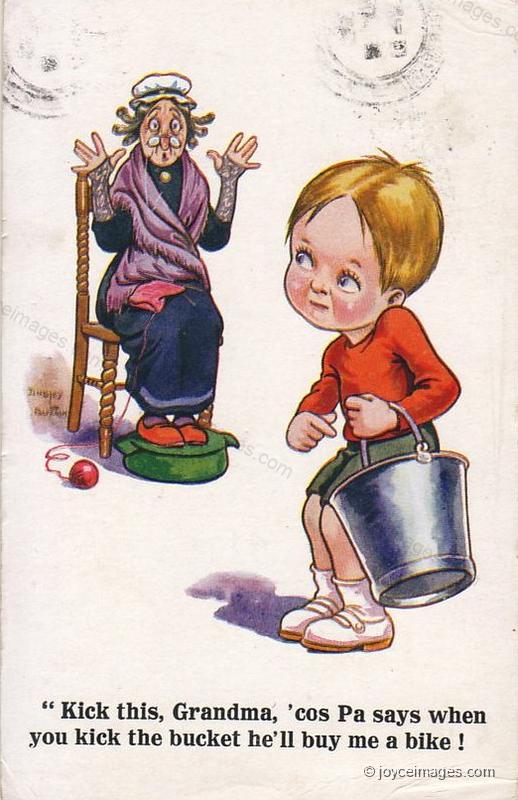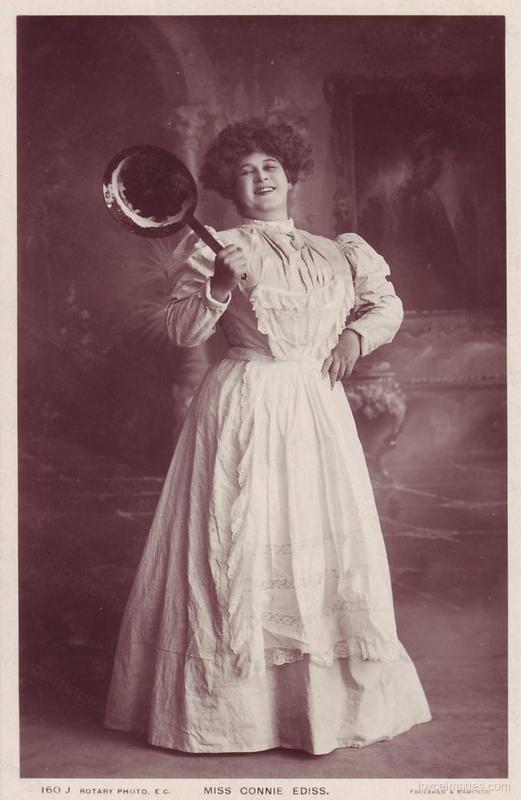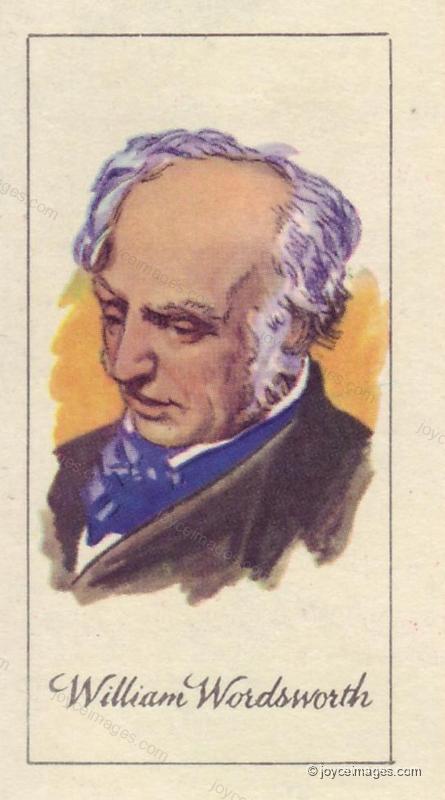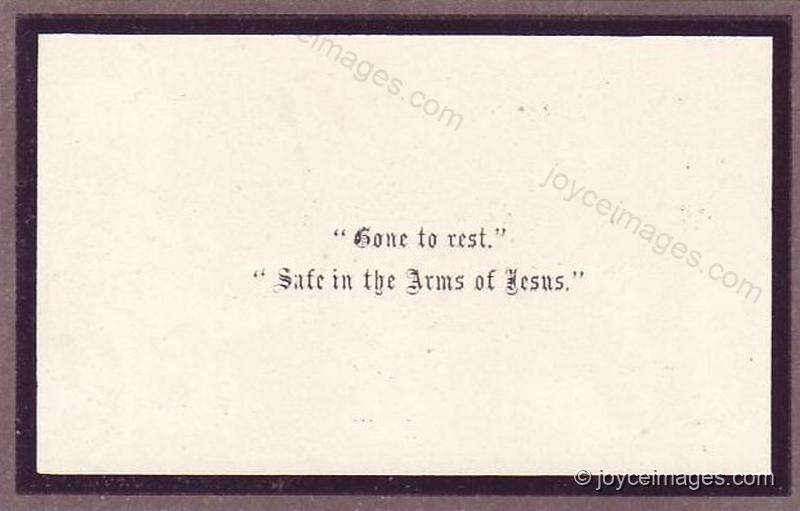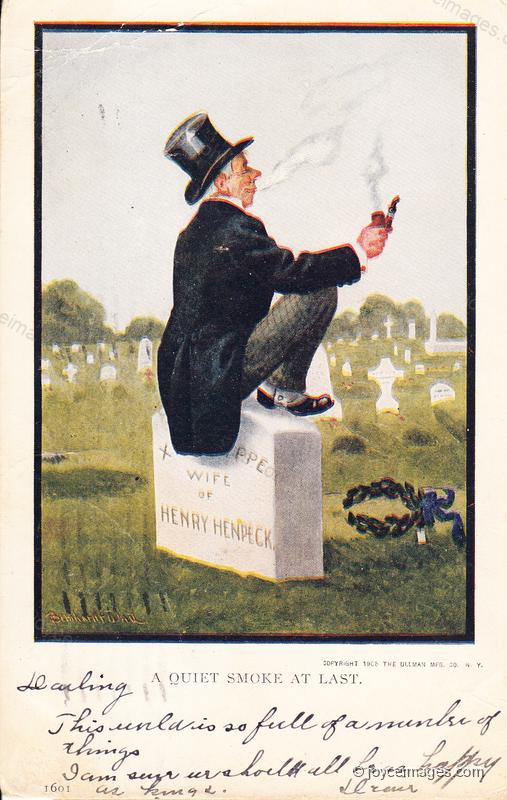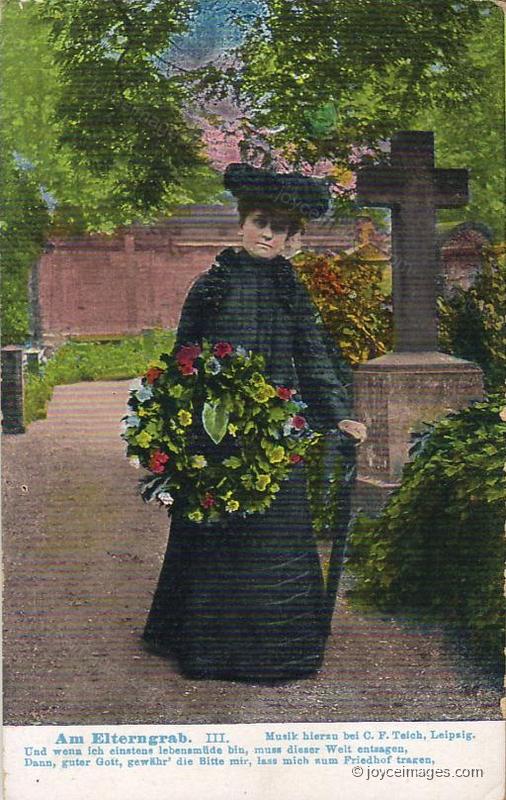"He moved away, looking about him.
- No, Mr Bloom began, turning and stopping. I say, Hynes!
Didn't hear. What? Where has he disappeared to? Not a sign. Well of all the. Has anybody here seen? Kay ee double ell. Become invisible. Good Lord, what became of him?" (U6.897)
- No, Mr Bloom began, turning and stopping. I say, Hynes!
Didn't hear. What? Where has he disappeared to? Not a sign. Well of all the. Has anybody here seen? Kay ee double ell. Become invisible. Good Lord, what became of him?" (U6.897)
"A seventh gravedigger came beside Mr Bloom to take up an idle spade.
— O, excuse me!
He stepped aside nimbly.
Clay, brown, damp, began to be seen in the hole. It rose. Nearly over.
A mound of damp clods rose more, rose, and the gravediggers rested their spades. All uncovered again for a few instants. The boy propped his wreath against a corner: the brother-in-law his on a lump. The gravediggers put on their caps and carried their earthy spades towards the barrow. Then knocked the blades lightly on the turf: clean. One bent to pluck from the haft a long tuft of grass." (U6.902)
— O, excuse me!
He stepped aside nimbly.
Clay, brown, damp, began to be seen in the hole. It rose. Nearly over.
A mound of damp clods rose more, rose, and the gravediggers rested their spades. All uncovered again for a few instants. The boy propped his wreath against a corner: the brother-in-law his on a lump. The gravediggers put on their caps and carried their earthy spades towards the barrow. Then knocked the blades lightly on the turf: clean. One bent to pluck from the haft a long tuft of grass." (U6.902)
"One, leaving his mates, walked slowly on with shouldered weapon, its blade blueglancing. Silently at the gravehead
another coiled the coffinband. His navelcord. The brother-in-law, turning away, placed something in his free hand. Thanks in silence. Sorry, sir: trouble. Headshake. I know that. For yourselves just.
The mourners moved away slowly without aim, by devious paths, staying at whiles to read a name on a tomb." (U6.912)
another coiled the coffinband. His navelcord. The brother-in-law, turning away, placed something in his free hand. Thanks in silence. Sorry, sir: trouble. Headshake. I know that. For yourselves just.
The mourners moved away slowly without aim, by devious paths, staying at whiles to read a name on a tomb." (U6.912)
"Let us go round by the chief's grave, Haynes said." (U6.919)
The chief is Charles Stewart Parnell (1846 - 1891). This is a SV approaching his (unmarked) grave in Prospect Cemetery, with the O'Connell monument and the mortuary chapel in the background.
The chief is Charles Stewart Parnell (1846 - 1891). This is a SV approaching his (unmarked) grave in Prospect Cemetery, with the O'Connell monument and the mortuary chapel in the background.
"- Let us, Mr Power said.
They turned to the right, following their slow thoughts. With awe Mr Power's blank voice spoke:
- Some say he is not in that grave at all. That the coffin was filled with stones. That one day he will come again." (U6.920)
They turned to the right, following their slow thoughts. With awe Mr Power's blank voice spoke:
- Some say he is not in that grave at all. That the coffin was filled with stones. That one day he will come again." (U6.920)
"Hynes shook his head.
- Parnell will never come again, he said. He's there, all that was mortal of him. Peace to his ashes." (U6.925)
In this SV from 1896, Parnell's grave seemed to have plenty of visitors.
- Parnell will never come again, he said. He's there, all that was mortal of him. Peace to his ashes." (U6.925)
In this SV from 1896, Parnell's grave seemed to have plenty of visitors.
"Mr Bloom walked unheeded along his grove by saddened angels, crosses, broken pillars, family vaults, stone hopes praying with upcast eyes, old Ireland's hearts and hands." (U6.928)
"More sensible to spend the money on some charity for the living. Pray for the repose of the soul of. Does anybody really? Plant him and have done with him. Like down a coalshoot. Then lump them together to save time. All souls' day. Twentyseventh I'll be at his grave." (U6.930)
"Ten shillings for the gardener. He keeps it free of weeds. Old man himself. Bent down double with his shears clipping. Near death's door." (U6.934)
"Who passed away. Who departed this life. As if they did it of their own accord. Got the shove, all of them." (U6.936)
"Who kicked the bucket. More interesting if they told you what they were. So and So, wheelwright. I travelled for cork lino. I paid five shillings in the pound." (U6.937)
"Eulogy in a country churchyard it ought to be that poem of whose is it Wordsworth or Thomas Campbell." (U6.940)
The poem Bloom is (quite appropriately) re-titling is "Elegy Written in a Country Churchyard" by Thomas Gray (1716 - 1771).
The poem Bloom is (quite appropriately) re-titling is "Elegy Written in a Country Churchyard" by Thomas Gray (1716 - 1771).
"Entered into rest the protestants put it. Old Dr Murren's. The great physician called him home. Well it's God's acre for them. Nice country residence. Newly plastered and painted." (U6.942)
